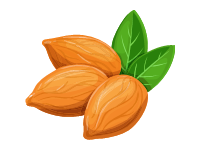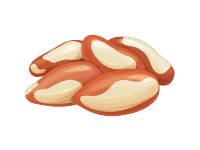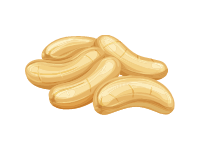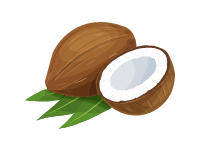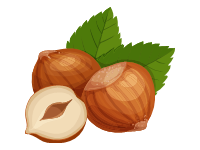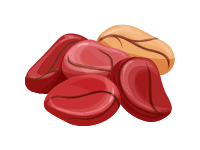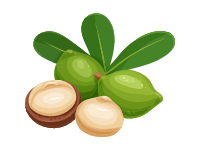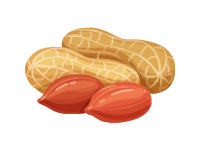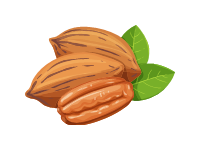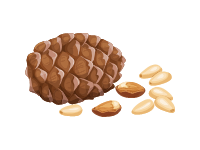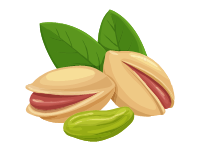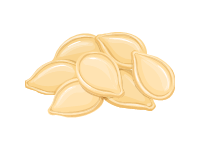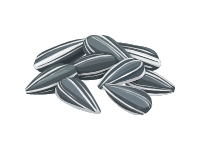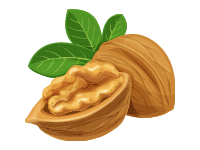The cashew tree (Anacardium occidentale) is a tropical evergreen tree that produces the cashew seed and the cashew apple. The tree can grow as high as 14 m (46 ft), but the dwarf cashew, growing up to 6 m (20 ft), has proven more profitable, with earlier maturity and greater yields. The cashew seed is often considered a nut in the culinary sense; this cashew nut is eaten on its own, used in recipes, or processed into cashew cheese or cashew butter. Like the tree, the nut is often simply called cashew. Raw cashews are 5% water, 30% carbohydrates, 44% fat, and 18% protein (table). In a 100 gram reference amount, raw cashews provide 553 Calories, 67% of the Daily Value (DV) in total fats, 36% DV of protein, 13% DV of dietary fiber and 11% DV of carbohydrates. Cashews are rich sources (20% or more of the DV) of dietary minerals, including particularly copper, manganese, phosphorus, and magnesium (79-110% DV), and of thiamin, vitamin B6 and vitamin K (32-37% DV) (table).Iron, potassium, zinc, and selenium are present in significant content (14-61% DV) (table).Cashews (100 grams, raw) contain 113 milligrams (1.74 gr) of beta-sitosterol.
